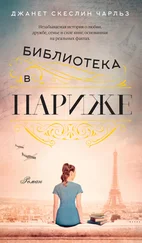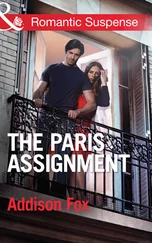“I loved books, so I became a librarian. You need to find your passion.”
“Dad said I should learn a trade.”
“He’s not wrong. You need to feel alive, but you also have to pay the rent. It’s important for a woman to have her own money. I worked as the church secretary, and appreciated the income. You want to have choices.”
“I just wish he wouldn’t lecture me.”
“Dear Professor Cohen always said, ‘Try to accept people for who they are, not who you want them to be.’ ”
“What did she mean?”
“She was talking about my father. She said he had my best interest at heart, but I wouldn’t believe her. You and your dad are different, but that doesn’t mean he doesn’t love and worry about you.”
THE DAY OF the winter formal, I told myself it didn’t matter that no one invited me to the dance. Boys in Froid didn’t have any brains. I’d find my soulmate in New York; I had already applied to Columbia. With five million men, one of them was bound to like me. Simone de Beauvoir didn’t find Sartre until she was twenty-one.
In the cafeteria, Mary Louise sidled up to me and invited me over after dinner to see her gown. For months, she’d forgotten I existed. Now she wanted to show off.
“Can’t,” I lied. “Too much homework.”
“Please!”
Part of me wanted to be a good friend. A bigger part wanted Keith to dump her, so she’d be as miserable as me.
After dinner, I slumped in Odile’s chair.
“Mary Louise abandoned me. Again.”
“Didn’t she invite you over to see her dress?”
I stared at the books on our 1955.34 shelf. Bridge to Terabithia , Roots, My Antonia . “I don’t want to go.”
“What if I come, too?” Odile asked.
I perked up. “It might help.”
The whole way to Mary Louise’s, she watched me. Like a hawk, Mom would have said. The minute we walked through the door, Mary Louise twirled for us. In the pastel gown, her neck and shoulders exposed, she appeared more delicate than ever.
Her body had changed almost overnight. Her breasts rose as bold as the Rockies, while mine stayed flat as the plains. Her hips curved like a bell, but my body, straight as a pencil, hadn’t budged.
“What do you think?” She tugged at the bodice.
“Stunning,” Odile said.
Crossing my arms over my stunted chest, I thought for a minute, until I found the compliment that would mean the most: “Prettier than Angel.”
“No!” Mary Louise peered at the mirror beside the coatrack. “Really?”
I nodded, not able to get any more words out. Jealousy welled like tears, and in that moment, the most beautiful she’d ever been, I could barely stand to look at her.
Keith arrived. He hovered near the door, and Sue Bob nudged him toward Mary Louise. The way he gazed at her made me feel hopeless. A sour bile rose in my throat; I swallowed again and again. Not sure I could last much longer, I inched toward the door. Mary Louise bounced over, and Sue Bob snapped a photo of the two of us. “Why should you be miserable and alone?” the bile said. “A real friend wouldn’t have guilted you into coming over. She’s gloating, can’t you see that? Tell the pimply jockstrap what she said—that the custom cutter she made out with kissed better, did everything better.”
With Mary Louise’s arm wrapped around my waist, I said, “Keith…”
Odile frowned.
“You should know—” I continued.
“Don’t,” Odile whispered. “It only takes a word. I can see the crows circling in your head.”
CHAPTER 45
Odile
PARIS, SEPTEMBER 1944
H OW COULD YOU betray me? Margaret’s question echoed in my head as I drifted down the sidewalk, toward the river, toward home. Though the magnificent Alexandre III bridge loomed before me, I only saw Margaret’s stubbled scalp. I wanted to hide in my room, or confess to Maman and Eugénie. But both would be horrified by the way I’d put my dearest friend in harm’s way. In Paul’s way. No, I was too ashamed to face Maman. I couldn’t go home. And I couldn’t go to the Library, where everyone loved Margaret. She had made it clear that she never wanted to see me again. This meant she wouldn’t return to the Library if I still worked there, and she’d lose her friends and her calling.
Not long ago, I’d cast suspicious glances at subscribers and wondered what kind of person would write a crow letter. Now I knew: someone like me. Monsieur l’Inspecteur, Margaret Saint James—a British subject—dared to fall in love with a German soldier. I’d even delivered my complaint to a policeman.
I started across the Seine, belt buckle in hand, the leather swaying like a switch. Leaning over the railing, I watched the water. I was a brute, every bit as much as Paul. I tugged at my wedding ring and hurled it into the river. There. He was no longer my husband. We’d divorce, and never speak again. Divorce. A divorcée was lower than a fallen woman. “What will the neighbors think?” Maman would ask. My mother wouldn’t care why I was divorcing. She would cast me out, just like Aunt Caro.
An hour earlier, I’d celebrated my future. Now there was only darkness. I didn’t know what to do with myself. I ambled up the Champs-Élysées, past couples dining at an outdoor café, around a line of cinemagoers, and continued on, not knowing where I was going until I arrived at the American Hospital. As I passed by the ambulance in the drive, a nurse said, “Glad you’re back. We could use the help.”
Margaret didn’t want anything to do with me, but I could care for the wounded here. I’d stay at the hospital—staff and volunteers slept on cots—like I had at the beginning of the war. I wouldn’t have to face my family and friends, and Paul would never find me. Relieved, I slumped onto the cement stoop of the back entrance.
Margaret had been right. I’d never admitted how angry it made me when she insulted soldiers like Rémy or when she insinuated that Bitsi’s mourning was a charade. I’d never admitted I’d been jealous of her glamorous life. I’d bottled up my resentment, and like a magnum of champagne that someone had shaken, sticky emotions came bursting out. In the moment, I’d wanted to punish her, and a moment was enough to ruin a life—Margaret’s and her daughter’s.
An American soldier on crutches hobbled over. “Hello, little gal.”
I sniffled, and he tendered a handkerchief.
“What’s wrong?”
I bit my lip, afraid to open my mouth, afraid the whole story would rush out.
He sat beside me. “What’s wrong?”
“I’ve done something terrible.”
“Well, that’s something that most people can understand.”
His gaze was so intense that I had to deflect his attention. “Which state are you from?”
“Montana.”
“What’s it like?”
“Heaven.”
Subscribers from Kentucky had said the same thing, so had soldiers from Kent and Saskatchewan. “You’ll have to convince me.”
“Montana’s the prettiest place on earth, and that’s saying something, sitting where we are, in gay Paree. I wanted to get away from my hick town, but if I’m lucky enough to go back, I swear I’ll never leave. The people there are decent. Honest. I used to think that was boring.”
“Boring might be nice for a change.”
“How come you speak English so good?”
“I learned at the American Library when I was a child.”
“There’s an American Hospital and an American Library?”
“Don’t forget the American Radiator Company and the American Church! M. de Nerciat, one of our subscribers, used to joke that Americans had colonized Paris without telling anyone.”
He laughed. “What subscribers?”
Читать дальше
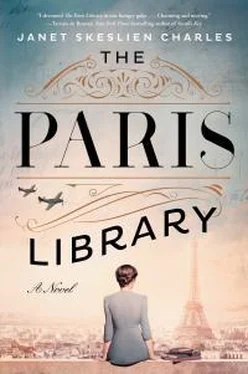
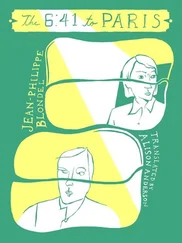
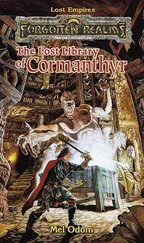
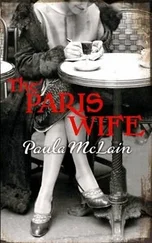


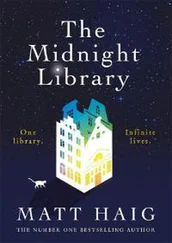
![Джанет Скеслин Чарльз - Библиотека в Париже [litres]](/books/391555/dzhanet-skeslin-charlz-biblioteka-v-parizhe-litres-thumb.webp)
